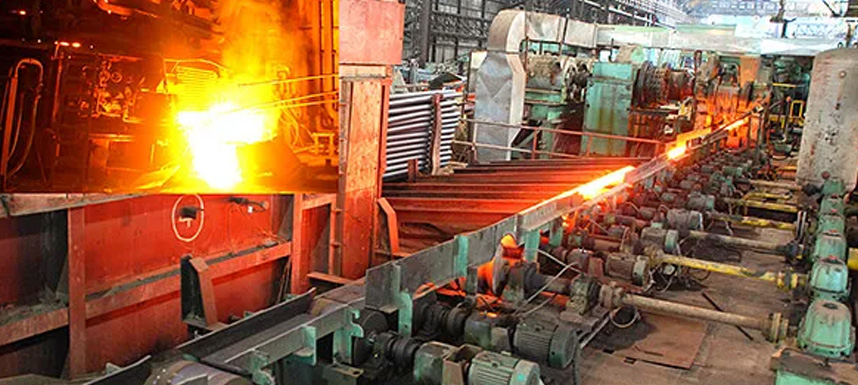
Iron & Steel Factory: Navigating Wastewater Treatment Challenges for Environmental Sustainability
Iron and steel factories are the backbone of industrial economies, providing essential materials for construction, manufacturing, and infrastructure development. However, the production processes inherent to iron and steel manufacturing generate significant quantities of wastewater containing various pollutants that pose environmental and public health risks if not properly managed. Effective wastewater treatment is essential to mitigate the environmental impact of iron and steel factories and ensure compliance with regulatory standards. This article explores the importance of wastewater treatment in iron and steel factories and the requirements, challenges, and sustainable solutions employed to address this critical issue.
The Significance of Wastewater Treatment:
Iron and steel manufacturing processes involve several stages, including iron ore extraction, smelting, refining, and steelmaking, each contributing to wastewater generation. This wastewater contains suspended solids, heavy metals, oils, grease, and chemicals such as acids and alkalis used in production. If discharged untreated, this wastewater can contaminate water bodies, harm aquatic ecosystems, and pose risks to human health. Therefore, effective wastewater treatment is essential to minimize environmental impact and ensure sustainable operations in iron and steel factories.
Regulatory Framework and Compliance Standards:
Environmental regulations govern wastewater discharge from iron and steel factories, setting strict limits for various pollutants to protect water quality and public health. Regulatory authorities impose effluent standards for parameters such as biochemical oxygen demand (BOD), chemical oxygen demand (COD), total suspended solids (TSS), pH, and specific chemicals used in the manufacturing process, such as heavy metals. Iron and steel factories must comply with these regulations to obtain operating permits and avoid fines or legal liabilities.
Key Requirements for Wastewater Treatment:
Effective wastewater treatment in iron and steel factories requires adherence to several key principles:
Primary Treatment: Pre-treatment processes, such as screening, sedimentation, and oil-water separation, remove large solids, oils, and grease from wastewater before further treatment. This step reduces the load on downstream treatment processes and prevents damage to equipment.
Primary Treatment: Primary treatment involves physical processes, such as coagulation-flocculation and sedimentation, to remove suspended solids and organic matter from wastewater. Chemical coagulants and flocculants are added to wastewater to facilitate the formation of flocs, which can then be separated through settling or flotation.
Secondary Treatment: Secondary treatment utilizes biological processes, such as activated sludge or biological nutrient removal (BNR), to further reduce the organic content of wastewater. Microorganisms metabolize organic pollutants and convert nitrogen and phosphorus into harmless compounds, reducing the BOD and COD of the wastewater.
Tertiary Treatment: Tertiary treatment may be necessary to remove specific contaminants, such as heavy metals or complex organic compounds, from wastewater. Advanced treatment technologies, including membrane filtration, ion exchange, and advanced oxidation processes (AOPs), are employed to achieve further purification.
Challenges and Innovations:
Iron and steel factories face several challenges in wastewater treatment, including the high variability in wastewater composition, complex contaminants, and the need for specialized treatment technologies. Moreover, wastewater treatment can be energy-intensive and costly, particularly for facilities with large-scale operations and stringent regulatory requirements. However, ongoing research and technological innovations offer opportunities to overcome these challenges and improve the efficiency and sustainability of wastewater treatment in iron and steel factories.
Sustainable Solutions:
Iron and steel companies increasingly adopt sustainable wastewater treatment solutions to minimize environmental impact and enhance resource efficiency. These solutions include:
Resource Recovery: Metals and other valuable materials can be recovered from wastewater and recycled in manufacturing or other industrial applications. Additionally, biogas produced during wastewater treatment can be captured and used to offset energy costs or power on-site operations.
Water Recycling: Implementing water recycling systems allows iron and steel factories to reuse treated wastewater for process rinsing, cooling, or boiler feedwater, reducing freshwater consumption and wastewater discharge.
Closed-Loop Systems: Closed-loop systems minimize water consumption and wastewater generation by circulating process water within the production facility. Iron and steel factories can reduce environmental impact and improve overall sustainability by optimizing water use and recycling.
Conclusion:
In conclusion, wastewater treatment is integral to environmental responsibility and regulatory compliance in iron and steel factories. Iron and steel companies can minimize their ecological footprint and protect surrounding ecosystems and public health by implementing effective treatment processes, adhering to regulatory requirements, and embracing sustainable solutions. As the importance of environmental stewardship continues to grow, investing in wastewater treatment infrastructure and adopting innovative technologies is essential for the long-term sustainability of the iron and steel industry.
Get in Touch
You will find yourself working in a true partnership that results in an incredible experience, and an end product that is the best.
Call us on
+91-8882354793
Email us
contact@agileventures.in
